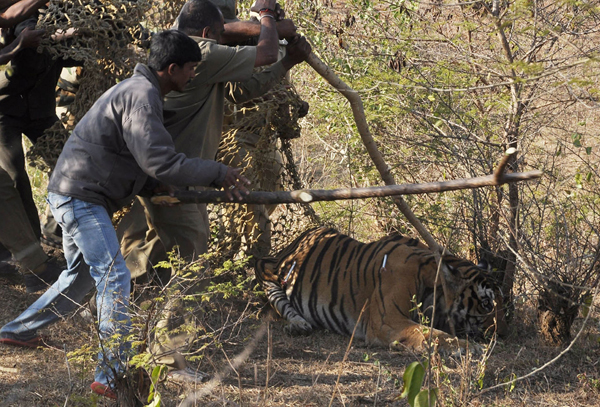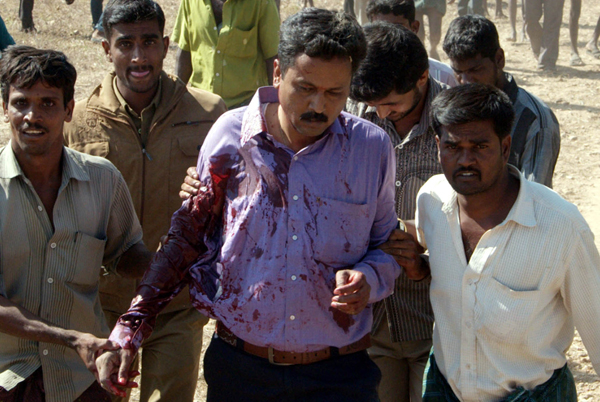New Delhi, Jul 15: The employees union of state-run telecom operator BSNL will stage protests across the country on Thursday on a host of issues including the cancellation of its 4G tender and non-payment of salaries.
All major unions are organising ‘lunch-hour black-flag' demonstrations throughout the country under the banner of All Unions and Association of BSNL (AUAB), said a statement by AUAB. These demonstrations will be organised, by maintaining social distancing and by taking other precautions, like wearing of masks. The BSNL employees will also wear black-badges the whole day on July 16.
The employees body would demand that BSNL should immediately be allowed to roll out its 4G services and the tender should be issued immediately. Further, they want that in the matter of procuring new equipment and upgradation, there should not be any discrimination between BSNL and other private telecom service providers.
Recently, the Centre cancelled the 4G upgradation tender for BSNL as it had decided to come up with fresh specifications for the upgrade process, in a move to keep Chinese technology companies at bay as the border tussle escalated with the northern neighbour.
The Department of Telecommunications (DoT) would issue a fresh tender for the same, and people in the know said that Chinese companies may not be allowed to participate.
"The agitational programme is being organised to express the deep anguish and resentment of the employees against cancellation of BSNL's 4G tender, cancellation of BSNL's proposal for upgradation of its 49,300 BTSs to 4G, abnormal delay in issuing ‘Add on Order' for 4G equipments, inordinate delay in the implementation of BSNL's Revival Package and against the non-settlement of the burning problems of the employees," said the statement.
The umbrella body of BSNL's employees' unions noted that rolling out of 4G services is the backbone for the revival of this telecom PSU, but the recent cancellation of the tender floated by BSNL for procuring 4G equipment at a cost of Rs 9,300 crore, has brought the company back to square one.
It said that BSNL is already having 49,300 base transceiver stations (BTS), which are 4G compatible and through minor upgradation, all these equipment can be converted into 4G BTSs with an investment of about Rs 1,500 crore.
In addition to this, BSNL could have added another 15,000 BTSs, by placing an Add on Order to the existing mobile tender, it added.
Noting that in October 2019, the PSU could have rolled out pan-India 4G services, AUAB said: "Being the sole owner of the company, the Government of India also cannot shirk its responsibility in this matter."
"Adding insult to injury, the tender floated by BSNL to procure 4G equipment, has been cancelled by the government, based on a complaint from the Telecom Equipments and Services Promotional Council (TEPC)," it said.
AUAB said that BSNL is already lagging four years behind the private operators, in terms of 4G and the cancellation of the tender is going to inordinately delay the company's 4G launch.
Saying that TEPC's contention has been to bar foreign companies from participating in BSNL's tender, AUAB statement pointed out that when private operators are procuring equipment from multinationals, "why BSNL alone should be compelled to procure 4G equipments from domestic vendors, whose 4G technology is not tested or proven so far."
It alleged a conspiracy to destabilise BSNL by disrupting its rolling out of 4G services.
AUAB further said that even after the lapse of nine months, the implementation of the much publicised BSNL's Revival Package is moving at a snail's pace.
"Except the swift retrenchment of 79,000 BSNL employees under VRS, all other assurances given in BSNL's Revival Package have been put in cold storage."
The management should ensure that the salary payment of the employees is made on the last working day of every month. Deductions made from employees' salary, on account of "society dues", should immediately be remitted, it said.
Regarding the monetisation of the company's assets under the revival package, the organisation said that the land asset should not be handed over to corporates, at "throwaway" prices.
"These lands should be sold in a transparent manner and at the prevailing market rates. They should not be sold at book value or at circle rates. The AUAB will strictly monitor these dealings," it said.







Comments
Add new comment